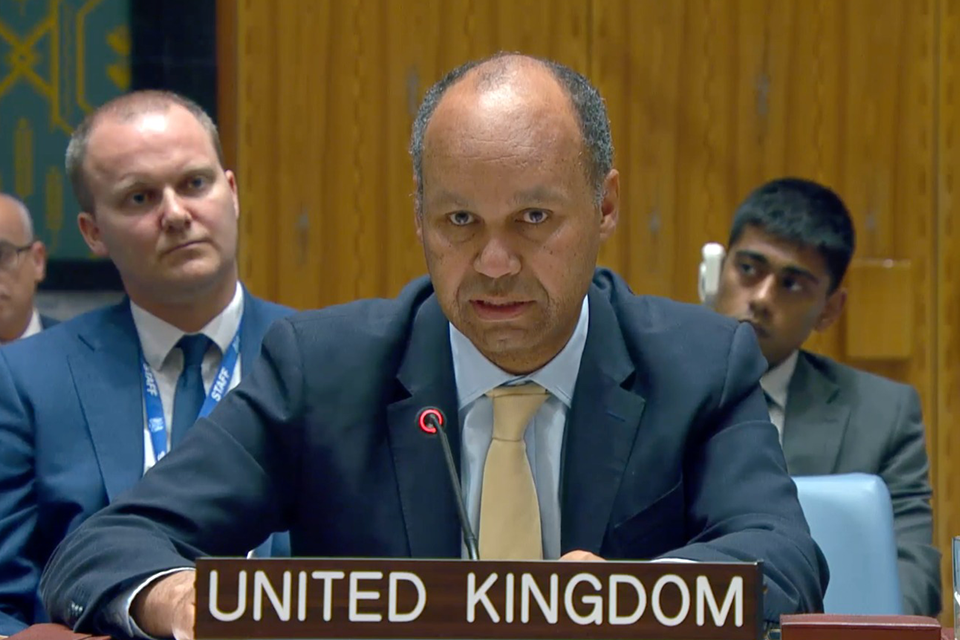The UK is committed to efforts to address the root causes of displacement: UK statement at the UN Security Council
Statement by Ambassador James Kariuki at the UN Security Council briefing by UNHCR.

Thank you, President, and thank you, High Commissioner Grandi for your powerful remarks today.
This meeting comes at a crucial moment. As the High Commissioner has told us, the number of people who have been forced from their homes continues to rise, with direct impacts for regional stability and international peace and security.
We all have a role to play in reversing this trend, not just because it is the right thing to do for displaced people and host communities, but because it is necessary if we are to leave no one behind and meet the Sustainable Development Goals. As we raise our collective ambition in line with the 2030 goals – for inclusive education, for women and girls, and for climate resilient populations – the UK is committed to efforts to address the root causes of displacement, to tackle human trafficking and to ensure that displaced populations are not left behind.
This Council has a role in tackling rising displacement, including by addressing the conflicts that are driving it. We have discussed the very concerning situations in Gaza and Ukraine in recent days. So today, I will focus my remarks on the UK’s efforts in two contexts which require more international attention including in this Council.
First, the Rohingya have faced decades of persecution and are the largest stateless population in the world. Almost a quarter have been confined to IDP camps in Myanmar’s Rakhine State. Around one million Rohingya refugees live in camps in Bangladesh, the majority of whom arrived in 2017 after fleeing ethnic cleansing by the Myanmar military. They are heavily reliant on humanitarian aid, with very little opportunity to work and largely unable to leave. The UK is a leading donor to the Rohingya response and our humanitarian programme is focused on meeting the basic and urgent needs of refugees. Since 2017 we have provided over $57 million of support to the Rohingya and other Muslim minorities in Myanmar’s Rakhine state and over $496 million in Bangladesh to the Rohingya. We must also do more as a Council to bring an end to the conflict in Myanmar.
Second, President, the consequences of the Sudan conflict have been devastating for civilians. Both the Sudanese Armed Forces and the Rapid Support Forces are responsible for appalling human rights abuses. Sudan is now the world’s largest displacement crisis, with more than 8.8 million people forced to flee their homes to escape violence and hunger, including 2.1 million who have fled to neighbouring countries. These communities remain vulnerable, often unable to access basic needs, including food, shelter, clean water, sanitation, and medicine. The United Kingdom has nearly doubled our humanitarian assistance to over $110 million to support the Sudanese people. And we will continue to work with Council members towards urgent de-escalation, in particular around El Fasher, a ceasefire and a political process to deliver sustainable peace and improved humanitarian access.
Finally, along with many other states and partners, the UK was pleased to announce new commitments to support refugees and host communities at December’s Global Refugee Forum.
In the face of unprecedented need, now is the time to renew our efforts to address the drivers of displacement and deliver meaningful change for displaced people. Under the leadership of the High Commissioner, we must now work together to translate the commitments we have all made into tangible action that helps to address the needs of the displaced and advances the implementation of the Global Compact on Refugees.
The UK also remains committed to improving international efforts to tackle the scourge of people smuggling and human trafficking. It is vital that we all work together to make migration more safe, orderly, and regular. I thank you.